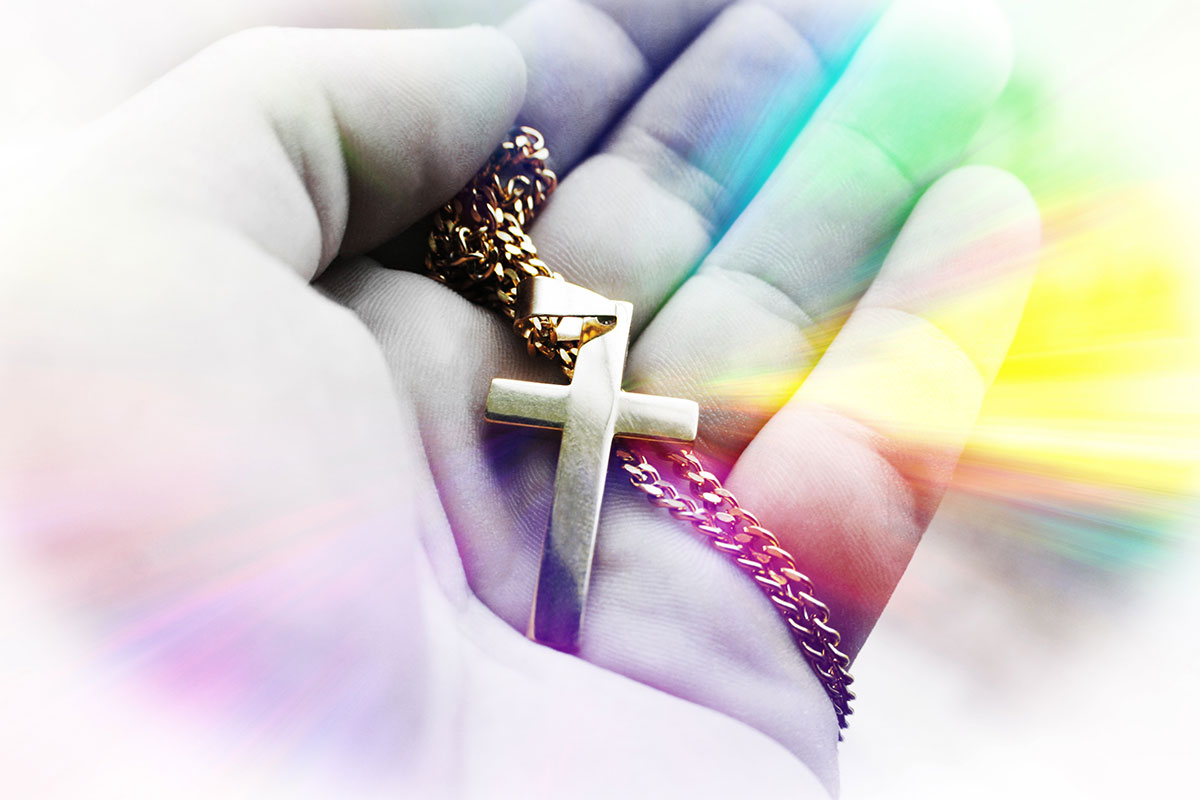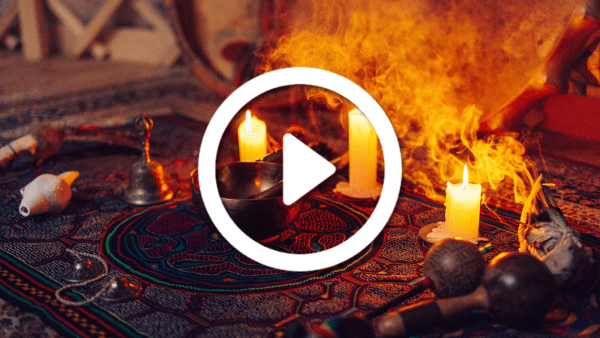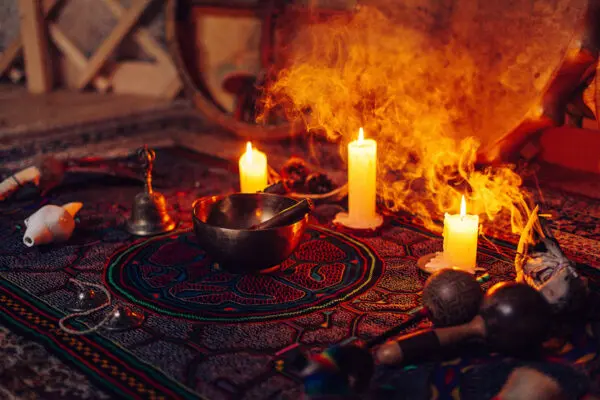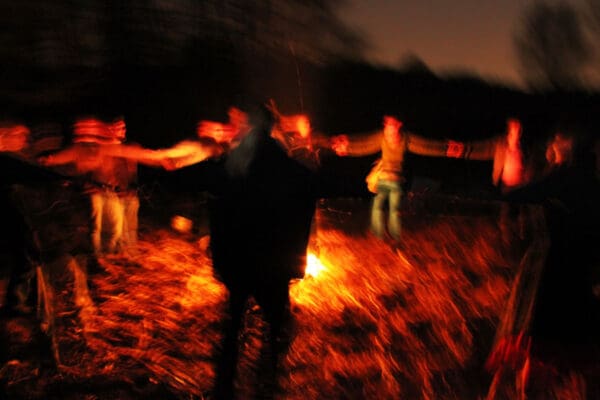Before Christianity became one of the world’s major religions, psilocybin mushrooms and other psychedelics played an important role in the ancient evolution of human religions. Due to psychedelic medicine’s ability to bring about spiritual realizations, even those so powerful that an Atheist welcomes a higher power, one would think that Christianity and psychedelics could be compatible. While there are many Christians who embrace psychedelics, such as this Reddit user who penned a post titled “Why Psychedelics and Christianity Go Hand in Hand,” in mainstream society, the church has mostly rejected psychedelics on shaky moral grounds, despite the fact that their numbers are dropping as more and more people seek out spiritual guidance from indigenous religions which use the plant medicine ceremonially.
The Spiritual Nature of Psychedelics
Psychedelics and religion have a colorful history, which can be easily understood by anyone who’s had a spiritual awakening using psychedelic medicine. The secular and religious use of the hallucinogenic Amanita muscaria mushrooms in Siberia goes back an estimated 6,000 years ago. African religions use Iboga, the shrub from which ibogaine is derived for ceremonial purposes. South American religions use ayahuasca. Before destinations such as South America became popular psychedelic retreats, Westerners embraced psychedelics such as LSD for spiritual growth on their own soil (as is still done today).
However, philosophers such as Alan Watts note that spiritual experiences encouraged by drugs go against the grain of American values. According to Pew Research Center surveys from 2018 and 2019, 65% of American adults describe themselves as Christian. In a society where sobriety, ego, and the power of the will are considered cornerstones to success, using psychedelics for enlightenment can be terrifying. The fear behind such a concept may be due to its power to disrupt this Capitalistic and Christian approach to life.
“Western culture has, historically, a particular fascination with the value and virtue of man as an individual, self-determining, responsible ego, controlling himself and his world by the power of conscious effort and will. Nothing, then, could be more repugnant to this cultural tradition than the notion of spiritual or psychological growth through the use of drugs,” writes Watts.
Furthermore, as Watts describes, psychedelics can help a person feel one with the universe, and therefore, one with god. In Christianity, it’s a blasphemous sin to consider oneself equal to god. In the Garden of Eden, Adam and Eve are tempted to eat the fruit of a tree which would have “made them as gods, knowing good and evil” (Gen 3:4). But has the infamous fruit of a tree really been psilocybin all along?
Psychedelics and Christian History
Despite the common yet unresearched Christain stance that all drugs are bad, there is evidence that psychedelics appear in Christian history, in particular, religious art. According to a 2019 article in the Journal of Psychedelic Studies, ethnomycologist R. Gordon Wasson says that imagery of psychoactive mushrooms is present in biblical art, in particular, depictions of the Garden of Eden.
One painting remains of particular interest, a Garden of Eden fresco in the 12th century Chapel of Plaincourault in France. Therefore, it is theorized that forbidden fruit in the Garden of Eden is actually magic mushrooms, which could surely open up Adam and Eve to a host of knowledge. Researchers Jerry B. Brown Ph.D. and Julie M. Brown M.A., authors of The Psychedelic Gospels: The Secret History of Hallucinogens in Christianity went on to retrace Wasson’s research, travel in search of religious shrooms, and study more Christian art from this period. As a result, they may have found psychedelic mushrooms depicted in stained glass windows, sculptures, and even more frescos.
The Christian War on Psychedelics
Ironically, while psychedelics can be powerful tools to welcome a higher power, historically, many of America’s most prominent religious figures used Christain morals to stage campaigns against such substance. The most famous example of such hypocrisy is the War on Drugs launched by President Nixon in the early 1970s and fueled by Ronald and Nancy Reagan in the early 1980s. Reagan signed the Anti-Drug Abuse Act in 1986, which gave $1.7 billion to fight drug use and established mandatory minimum prison sentences for drug offenses. Nixon called psychologist and psychedelic advocate Timothy Leary “the most dangerous man in America.” Meanwhile, while many Christian churches host AA meetings in their basements, they serve alcohol on the top floor, as it’s commonly used in the sacrament of communion.
Wine, representing the blood of Christ, is commonly used by Christians in church and during rituals. In the U.S., an estimated 95,000 people die from alcohol-related causes annually. Meanwhile, as the Drug Policy Alliance points out, deaths stemming from psilocybin are extremely rare. Clearly, many Christians, such are the Reagans, are okay with mind-altering substances, but only those that fit their needs and comfort. The categorization into what’s allowed and what’s sinful is rooted in tradition and colonization rather than science. In the Gospel account of the Marriage at Cana, when the wedding ran out of wine, Jesus famously turned water into wine, to showcase his divinity and authority. While some Christians are teetotalers, others who embrace wine have a rich religious history to inspire their acceptance of the substance.
In the 2020 book Immortality Key, which researches the spiritual life of the ancient world, author Brian Muraresku traces Christian opposition in the U.S. to peyote. One letter from the commissioner of the Bureau of Indian Affairs apparently complained that indigenous people using peyote was “interfering quite seriously with the work of the missionaries.”
Final Thoughts and Conclusion
Psychedelic medicine’s ability to create a spiritual experience is well-documented. A 2019 Johns Hopkins survey on 4,285 people who reported personal experiences with god either on their own or with the use of a psychedelic, more than two-thirds of self-identified Atheists who took the study dropped the Atheist label afterward. Of the survey participants, 809 responded to the non-drug survey and 3,476 responded to the psychedelics survey. In 2017, Johns Hopkins brought in 12 religious leaders of all dominations, including priests, to take two powerful doses of psilocybin. The study was met with comments from right-wing Christian and conservative commentator Ann Coulter such as “The best part about being a Protestant is that we get to ignore stupid things our leaders say.”
The link between Christianity and psychedelics is tenuous at best. Most of the modern evidence indicates that following the Reagan model, Christians do not support psychedelic drug use. However, Christianity is dropping in the U.S. Regarding the Pew Research Center poll which found that 65% of American adults describe themselves as Christian, it’s worth noting that number is down 12% in the past decade. Meanwhile, travel to South America to take part in ayahuasca ceremonies is booming.








